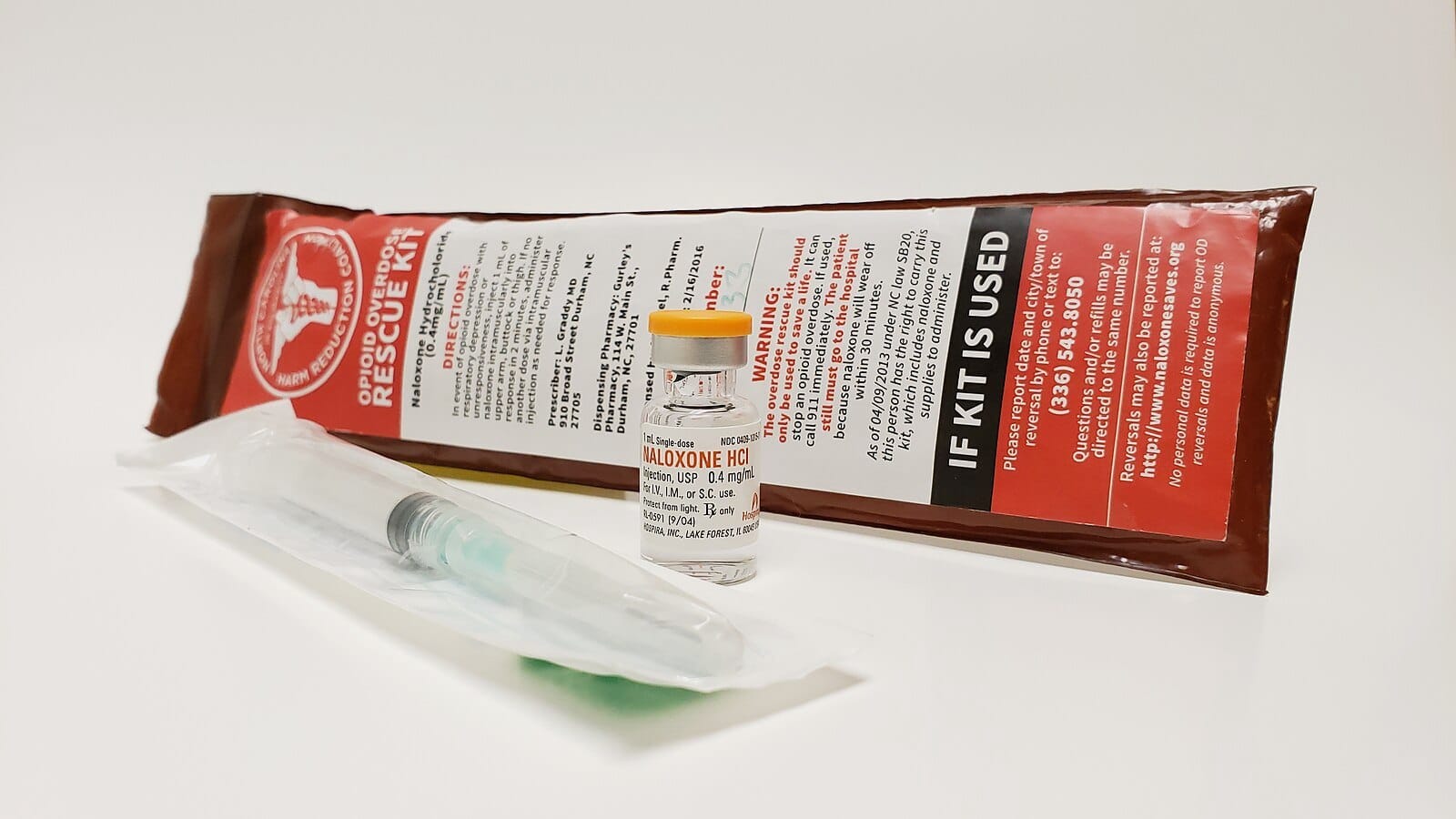A new report indicates that syringe service programs (SSP) are spreading in Kentucky, and far more peolpe are using them. It’s welcome news in a state that has been hit hard by overdose deaths and other drug-related harms.
On April 25, Dr. Oshea Johnson, a Centers for Disease Control and Prevention epidemic intelligence service officer based in Lexington, presented research he co-authored at a conference in Atlanta, as local NPR station WKMS reported. According to the report, Kentucky’s total number of SSP more than doubled between 2018 and 2022—increasing from 27 to 56. The number of individuals accessing services rose by 125 percent in that time period, exceeding 26,000 in 2022. Total recorded visits grew more rapidly still, rising from 22,350 to 108,200.
SSP were officially authorized in Kentucky in 2015, under a law signed by former Governor Steve Beshear (D). They offer a range of vital services beyond the provision of sterile syringes that remove people’s risk of blood-borne disease transmission. Distribution of the opioid overdose antidote naloxone, for example, increased by 1,456 percent at Kentucky SSP during the study period.
In that context, it’s notable that in 2023, the state published mortality data showing that overdose deaths declined in 2022, for the first time since 2018. The 2,135 lives lost in 2022 represented a decrease of over 5 percent on the prior year. Over 72 percent of deaths involved fentanyl.
But while the number of white Kentucky residents who died fell by 158 that year, recorded deaths among Black residents increased by 19, and those among members of “other” racial groups rose by 17.
“When you expand what is provided … then we start to have more individuals we can engage.”
Shreeta Waldon, executive director of the Kentucky Harm Reduction Coalition, told Filter that these differing trajectories demand more focus from elected officials, public health experts and the media. Kentucky is no outlier here, when years of national and state-level data have shown overdose deaths increasing among Black, Indigenous and Latino communities, while remaining stable or declining in white communities. Many contributing aspects of structural racism include disparities in access to opioid use disorder medications like buprenorphine and other health care; differing rates of poverty and other social factors; and disproportionate rates of arrest and incarceration, leading to increased overdose risk.
For communities of color, “Why is this happening, and what services do we need to provide?” Waldon asked.
One need, she continued, is for wider distribution of all safer use supplies, including those used for smoking drugs. With syringe provision, “You’re dealing with one community of users,” she said. “What we’re saying is, when you expand what is provided at these mobile sites and expand ‘harm reduction’ or ‘safer use supplies’—let’s not just call it ‘syringe services’—then we start to have more individuals we can engage.”
More people, in total, are now accessing testing for blood-borne diseases at Kentucky SSP. HIV tests rose by 446 percent during the study period, and hepatitis C tests by 53 percent.
That’s critical when CDC data show that both total numbers and rates of acute hepatitis C infection in Kentucky increased overall between 2017 and 2021, rising from 83 to 198 new cases. New HIV cases, meanwhile, based on data shared by AIDSVu, were on a steep decline through the 2000s, but have fluctuated dramatically in more recent years, with a number of sharp spikes. In 2021, Kentucky saw 390 new cases—the highest number in over a decade.
These numbers speak to the importance of expanding harm reduction services to prevent transmissions, detect new cases and get more people treated.
But Kentucky still limits lifesaving services. The state “does not support supervised consumption or overdose prevention [sites],” Waldon said, and “we do not provide safer use supplies like stems and materials used for smoking or inhaling substances.” Harm reductionists who want to provide those services are forced to do so underground. New York City, which in late 2021 opened the nation’s first sanctioned safe consumption sites, has seen over 1,000 overdoses averted as a result.
“We don’t want people to miss those [other] opportunities; that’s what I feel gets missed when we promote just SSP.”
Waldon said the Kentucky Harm Reduction Coalition is working with local partners to see what legislation for harm reduction expansion they could lobby the Kentucky General Assembly and governor to approve. In 2023, harm reduction advocates backed a successful effort to decriminalize fentanyl test strips in the state.
But within the current reality and its limitations, Waldon urges harm reduction providers to change their messaging to bring more people through the door—so they can also benefit from referrals to treatment, wound care, counseling, support with housing or job training, and more.
“We don’t want people to miss those opportunities; that’s what I feel gets missed when we promote just SSP,” she said. “It’s about reminding people: If we stop saying, ‘We offer just syringe services,’ [and say] ‘We offer harm reduction services,’ then it will help bring people to the table who would otherwise not come, because they feel like it doesn’t apply to them because they’re not using syringes.”
Photograph by Intropin (Mark Oniffrey) via Wikimedia Commons/Creative Commons 4.0





Show Comments